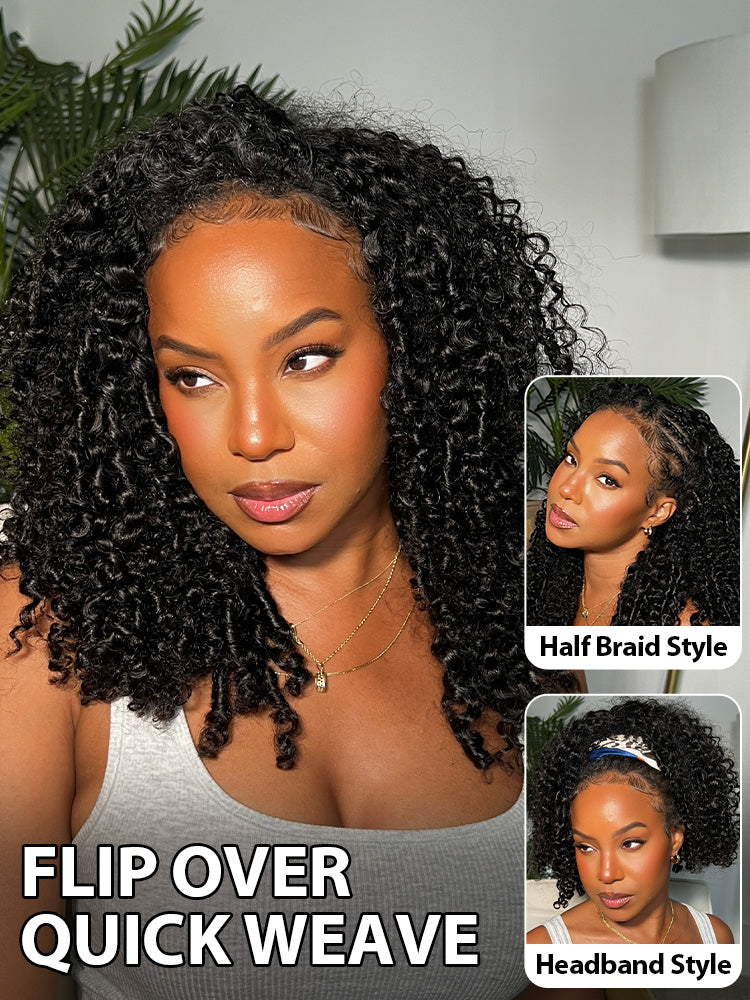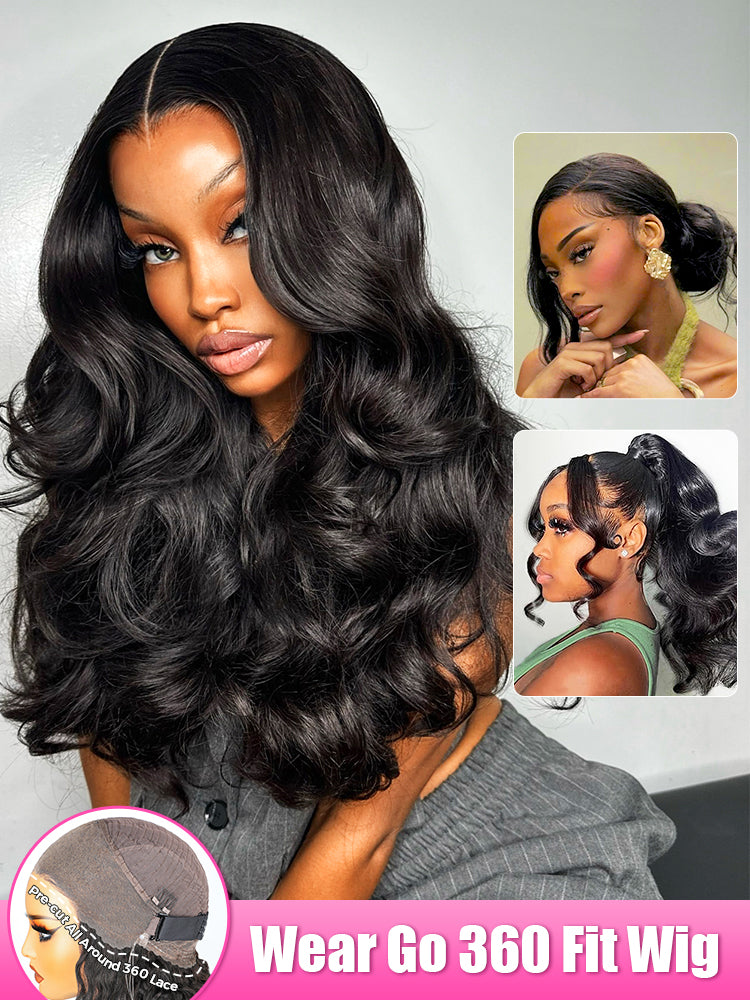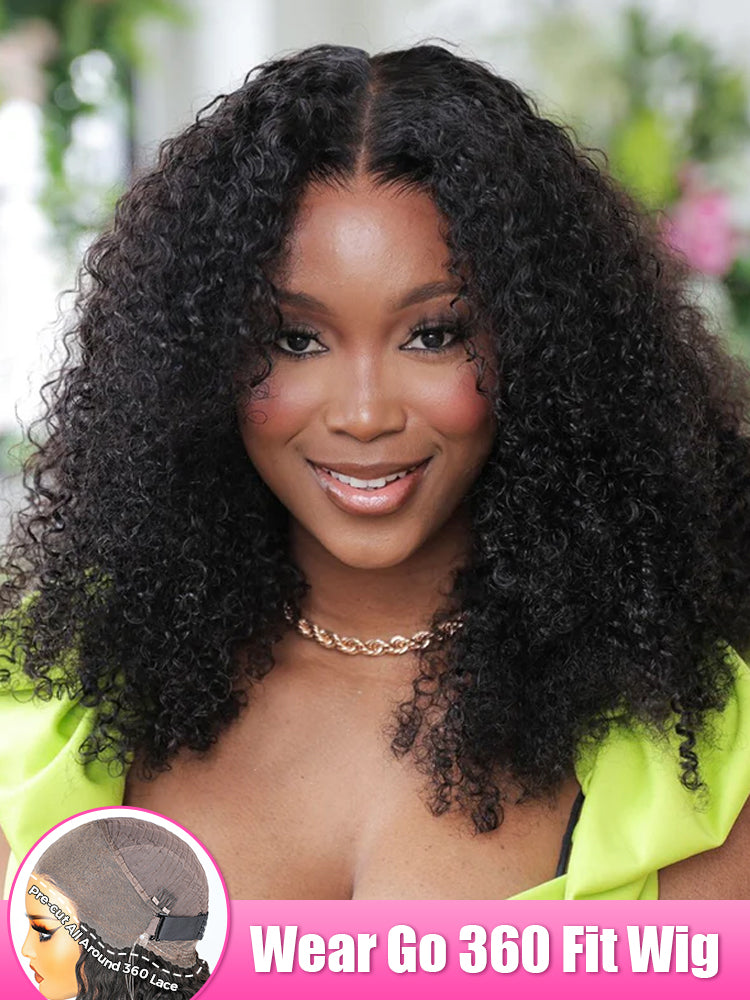For beginners, one of the most common concerns is, does wearing wigs cause hair loss? Today, we will take a closer look at the relationship between wearing wigs and hair loss and share how you can choose the right wig so you can enjoy stunning hairstyles while keeping your natural hair healthy and protected.

Does Wearing Wigs Cause Hair Loss?
Generally speaking, there is no direct correlation between wearing wigs and hair loss. Conversely, wearing a wig properly can shield natural hair from damage. Wigs act as a protective hair solution choice, especially for Black women. Black women’s natural hair is often more fragile. It can get damaged easily by pulling, heat, or the environment. Wearing a wig can help preserve the health of natural hair. This way, your hair can grow well while wearing the wig. However, there are certain bad habits in wearing them that can lead to hair damage and thinning.
1. Using Wigs With Poor Breathability
Wigs made from thick materials often don't allow air to pass through well. This causes heat to build up on the scalp and makes it feel stuffy. Also, the constant rubbing and pressure between the wig cap and scalp can weaken hair follicles.
This problem worsens in hot weather. When it's hot for a long time, sweat cannot evaporate quickly and stays on the scalp. This can cause itching and disturb the natural balance of the scalp. The scalp may become inflamed. Under these conditions, hair follicles cannot function properly. Over time, this can harm their health and affect normal hair growth.
When purchasing a wig, choose a cap with good breathability, such as a 3D dome cap wig made from high-quality nylon fabric and canvas. This cap is softer and more flexible. Its high breathability also helps dissipate heat, reducing sweat accumulation and thus lessening damage to the scalp.
2. Prolonged Use of Glue-On Lace Wigs
Long-term use of lace wigs that require glue to secure them can cause a receding hairline for those with sensitive scalps. Frequent chemical irritation during installation and removal can damage hair follicles in the hairline, leading to hair loss. Therefore, while lace wigs are very natural and versatile, long-term use is not recommended.
Alternative protective hair solutions have emerged on the market. For example, glueless human hair wigs have gradually entered the market and become mainstream in recent years. As the name suggests, these wigs do not require glue to secure them. These include glueless lace wigs, half wigs, and various types of drawstring wigs. These wigs eschew traditional wearing methods and upgrade the cap design. The wig cap shape allows for a more comfortable fit, combined with a built-in anti-slip band and invisible drawstring for optimal securement. They are a faster, more convenient, and healthier option.
3. Other Potential Factors
Besides wig type and mounting method, there are some common daily habits that are often overlooked:
Leaving the wig on for extended periods of time: The scalp doesn't have enough time to breathe, allowing oil to accumulate and potentially causing folliculitis.
Not wearing a wig cap: Placing the wig cap directly on dry or brittle natural hair can cause friction and breakage.
Ignoring scalp and hair care: For those who wear wigs for a long time, scalp cleansing and moisturizing are crucial. Wearing a wig shouldn't mean neglecting the care of your natural hair.
Wigs that are too tight: While this can make the wig more secure and provide a greater sense of security, prolonged tightness can affect blood circulation in the scalp.
CurlyMe Best Glueless Wigs
Conclusion
Wigs aren't the direct cause of hair loss; improper wearing and care can potentially contribute to hair loss. Choose breathable, comfortable, and glueless designs, and take good care of your scalp to allow your hair adequate rest and breathing time. This way, you can enjoy a variety of styling options while protecting your natural hair. It's possible to achieve both beauty and health; the key lies in knowing how to wear and care for your hair properly.
















